
23 Ways to Help Prevent Overtourism

23 Ways to Help Prevent Overtourism
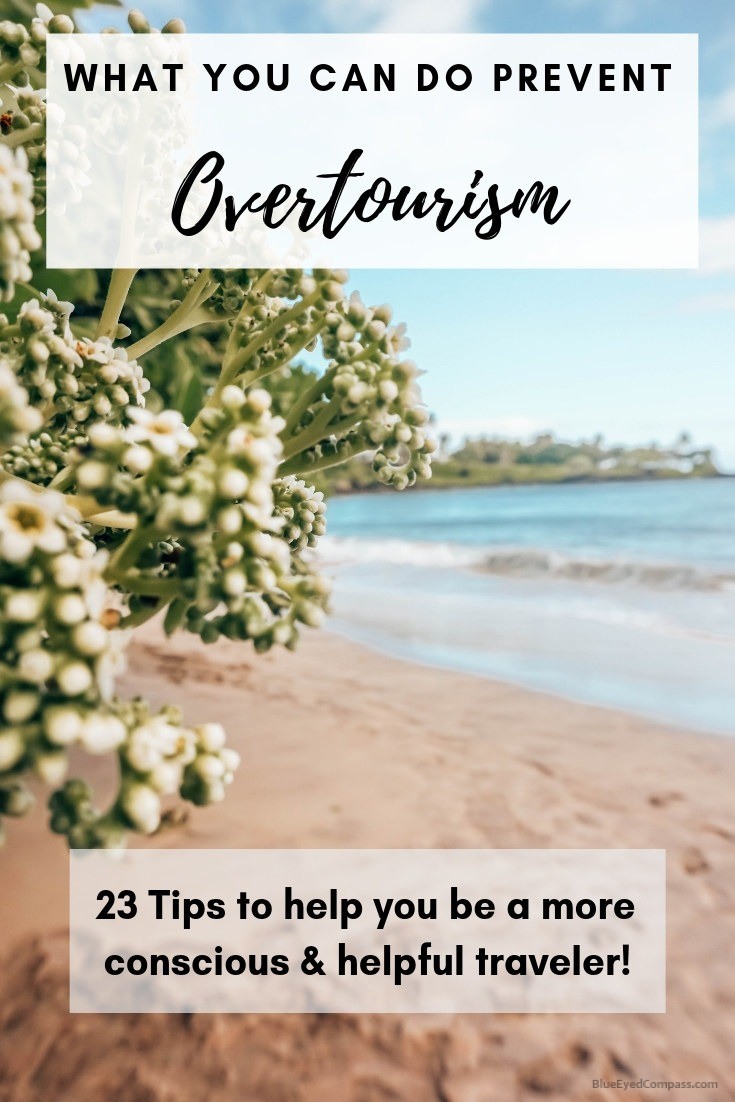
Welcome to the second part of Blue Eyed Compass’s Over Tourism series discussing what you can do to prevent over tourism! The previous post discussed what over tourism is, and its cause and effect on residents, visitors and the place itself. It can be easier to discuss what the issue is, yet awareness is only half of the battle. It’s important to know ways that you can enjoy your well deserved travels while also creating a positive impact on the tourism industry.
Here are ways that our governments and ourselves can help to prevent over tourism from creating a worse situation:
Ways that governments can help prevent over tourism
(1) Accurately tally & report tourism numbers based on type of visitors; for example cruise ship attendees, resort guests, backpackers, etc. Having accurate numbers will help determine what future actions need to be implemented
(2) Edit the ‘perception gap’ of destination management
Geez, I’m proud of myself for using ‘big’ words (haha), perception gap in terms of over tourism means the gap of governments concern for the quality of their destinations → over their desire for more revenue from the industry
Governments often think about where the money comes from in tourism, like developers, infrastructure, agencies, etc. instead of remembering that the ultimate tourism product is the actual place itself which ties into the next point: Tweaking their outlook from more tourism is better, to better tourism is better could be very helpful.
(3) Use holistic management models.
Implement regulations that effectively impact the environment, economic, social and cultural issues. After doing some research, it’s noticeable that irresponsible business practices lead to benefits that are too selective, which then doesn’t motivate anyone to protect things, which creates difficult obstacles for those who do wish to protect places based on legal, political and/or financial problems
Examples of destinations tourism goals:
San Diego: San Diego put into place a 20+ year plan in 2017 called ‘Experience San Diego Destination 2040’. Their plan is to raise $1.3 billion in its first five years based on an increase in hotels tax rates.
Is this plan good? YES! Because the funding goes back into the city to repair roads, work on infrastructure, etc
Peru: Promperu, the agency of the Ministry of Foreign Trade and Tourism Specialized Technical Agency, predicted a 43% growth of inbound tourism in 2016
China: in 2015, the Chinese people took 100 million outbound trips, and are predicted to take 160 million outbound trips in 2020. This makes China the world’s largest outbound tourism market
I had difficulty finding specifics for many locations on ways that this tourism would benefit the destinations and/or the residents there (if you are able to find any distinct details please share! I would love to know more)
(4) Governments can include the residents & caretakers of the place in their conversations
The locals see the impacts on a place first hand and understand best how to support it. Bridging the gap between these two is vital for the elimination of over tourism.
(5) Improve visitor management by regulating tourism
Examples of this are already being done in these places:
- Gorilla tracking in Uganda, Africa; visitors are required to pay for an expensive permit to do so, which limits the number of people going into the forest to see gorillas
- Havasupai Falls in Arizona, USA requires hikers and campers to obtain a limited number of permits.
- Japan is enforcing new regulations on AirBnbs once the 2020 Olympics are over so they can ensure certain requirements are met, and therefore limit the number of vacation rentals
- Iceland AirBnbs are now limited to being in use for only 90 days per year
- The Azores have a limited number of hotel rooms available & are working towards becoming certified as a ‘sustainable tourism region’
(6) Raise prices (cautiously)
- Bhutan’s solution to maintaining their culture is to require visitors to pay $200-$250/day just to be in the country & requires you to book your trip through a government accredited travel agency
- It’s imperative to raise prices cautiously because if prices increase too much and only the very wealthy can afford them, then the culture, history & nature of a place can become the private property of the wealthy & they’ll be the only ones concerned with protecting it
- *Consider this tactic this way: Apple iPhones are expensive, but those who really want it will pay for it, I believe the same could be possible for high tourism cities
(7) Disperse visitors & spread their visitation over time by coordinating with a nearby city to spread economic benefits
The Alhambra & Grenada, Spain currently do this by having timed tickets for the palace, so that visitors can spend time enjoying the city
(8) Limit the number of visitors to a place
(9) Have timed ticket admission
(10) Favor longer stays over day trippers
(11) Ban tour buses OR design a certain number of routes that run on a lottery of directions to prevent bottlenecking traffic
(12) Channel people into spaces that are designed to be trafficked (this could be great for outdoor spaces)
Ways that WE can help prevent over tourism
(13) Visit unique places that are off the beaten path
While major destinations may be overrun, remember there is beauty & diversity at the ‘under the radar’ places. The world is stil a big place filled with natural wonders. Here are a few places I would suggest:
- Norway
- The Azores
- Kennet Canals, England
- South Wales, Australia
- Slovenia, Ljubliana
- Sierra Gorda, Mexico
(14) Go outside of the major cities
There are less people there & those small towns may very well welcome you with open arms, plus you’ll have a more realistic experience on what daily life looks like there
(15) Travel during the ‘off’ season, aka ‘shoulder season’
- Doing so will allow you to avoid inflated prices, long queues & herding crowds
- I would suggest aiming to visit right before or after peak season
(16) Be respectful & check your entitlement
Yes, this may mean changing your attitude, however having a little respect to the people & place goes a long way for those who are living in a famous destination and are frustrated with tourists impolite & self entitled attitudes. And if you see this behavior in your fellow travelers, speak up. Often times we may not notice when we need to check out entitlement at the door
(17) Open your eyes
Instead of going on a vacation to turn away from the stresses of your life at home, and then also looking away while traveling, open your eyes to what you are seeing & be present. Take note of what people are doing, is it respectful? Ask yourself, “Can I do better?”
Think about it this way, if you were being paid to stay in a nice resort, eating for free & having concierges look after your every need, you would most likely spread wonderful words about it to everyone you meet
The idea behind this tactic is simple marketing, and it’s of course fine. However, as a reader & possibly as a traveler, make your own conclusion about a place & try not to base your travels on the word of those being paid to say good things
This could lead to becoming an ethical travel writer – so many travelers are PAID to write about a destination by the same place that they are visiting, so their perspective can be skewed.
(18) Avoid geo-tagging and adding your location to social media in fragile environments
As much we want to share the hidden beauty of a place, oftentimes it’s become that beautiful because of the lack of human interaction. Leave a little mystery to your audience.
(19) Come prepared
- Ask yourself why you want to visit a destination – is it because you want to truly experience the place, or are you looking to take a great picture that you saw some Instagrammers shoot pictures at?
- Prevent the creation of further waste – find responsible local restaurants ahead of time, bring your own reusable water bottle & cloth bags for shopping, and even pick up trash you see on the ground if you can. With large crowds come lots of trash, so limit how much waste you create.
Leave No Trace! is a set of principles for those venturing outdoors. You can see their list of principles here.
(20) Worry less about that perfect picture
Many travelers will ignore roped off areas or boundaries to be able to capture themselves in a perfect picture. However, those boundaries are these for you protection & for the environments Imagine if all 2 million tourists visiting Iceland every year walked over the roped off areas of their fragile land (which has been happening much more frequently), the reasons everyone began visiting Iceland – for its beautiful nature -will become mud pits from everyone’s shoes.
(21) Focus on Quality over Quantity
This is behavioral and based on what you, as a traveler, prefer – is it true travel experiences or snap & run selfie stick vacations? Is it better to save yourself money on a cheap fast food dinner, or spend more on a fine dining experience?
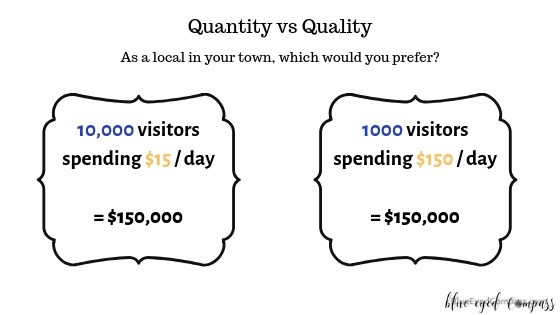

(22) Local local local
- Eat local produce
- Stay at a local guest house or a hotel with eco-friendly missions & recycling programs
(23) Share with others their environmental impact while traveling
Many aren’t aware of the issues at hand and the fragility of the destinations they visit. I only stopped using single use plastic last year, and the friends I’ve seen pay to pet baby tigers only now know it’s horrible after I’ve told them how the animals are treated. Sharing your experience & know how can help to create a larger community, and you never know what you can learn from others.
(24) Continue traveling!
This list of tips is meant to broaden your knowledge & provide insight into the travelers world. Of course you should continue to travel, but now you are prepared to do so responsibly, so travel & enjoy!
We all should rethink how we develop tourism and how we travel. We cannot possibly fit an infinite number of people into finite spaces. And while there is no sole solution, there isn’t a sole cause either. The more the tourism industry refines itself for each destination, the more people will feel comfortable coming to visit. And just like we shouldn’t consume mass produced processed foods, we shouldn’t be mindlessly travelers. So, what do you think? Do you think over tourism is even an issue? If so, do you have any additional tips or tricks to help protect the world?
Pin me for Later!
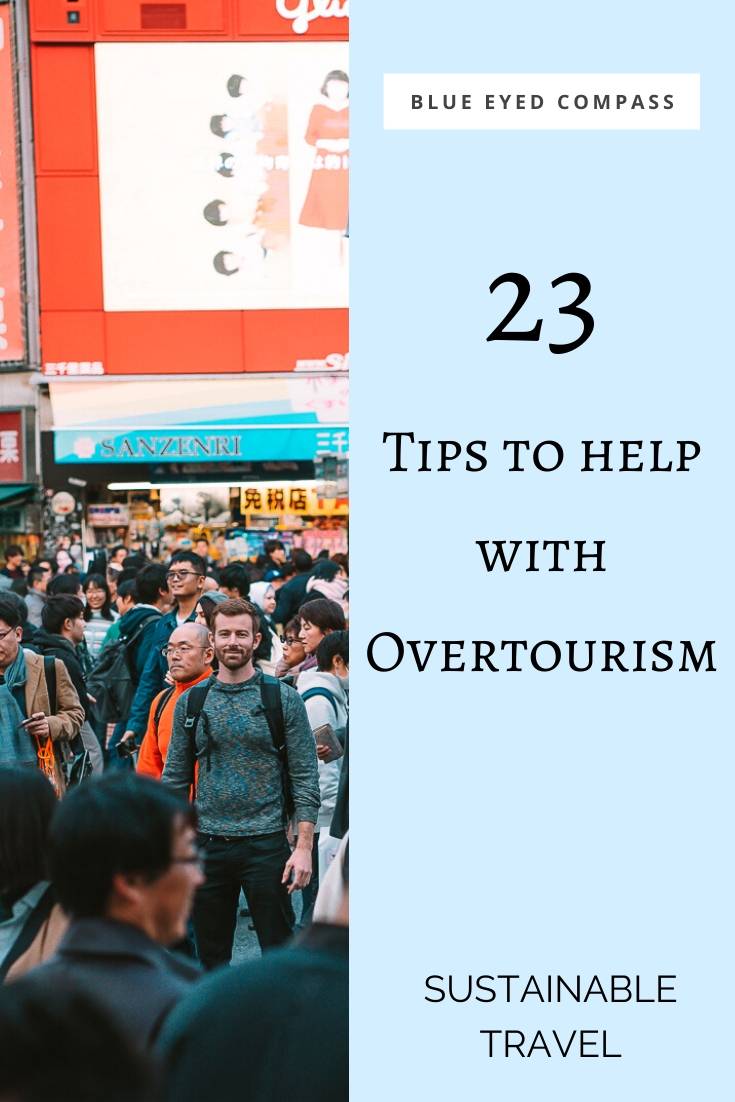

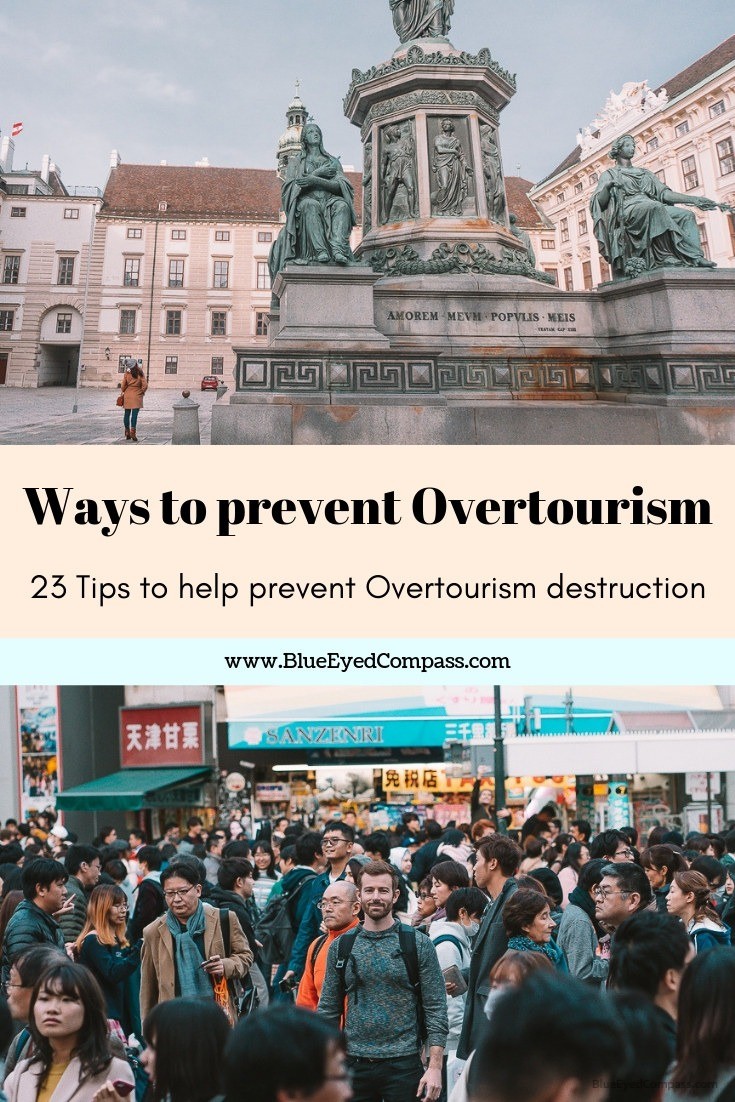

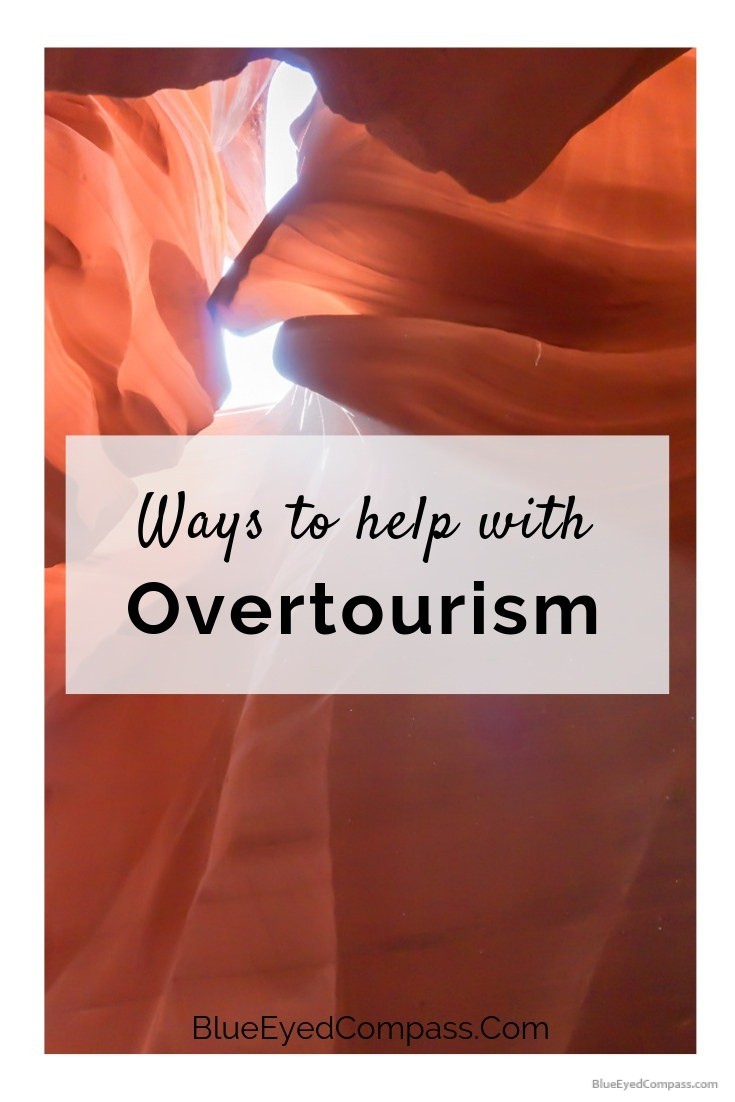

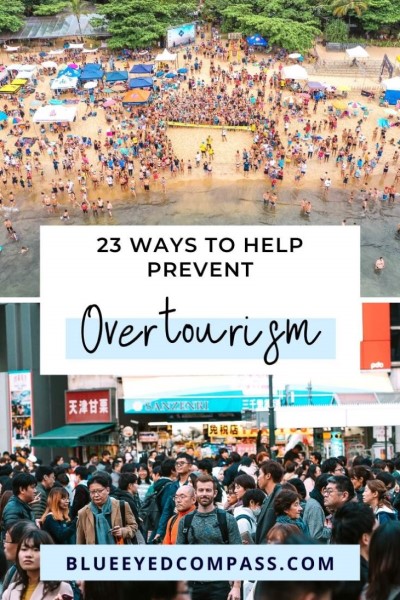




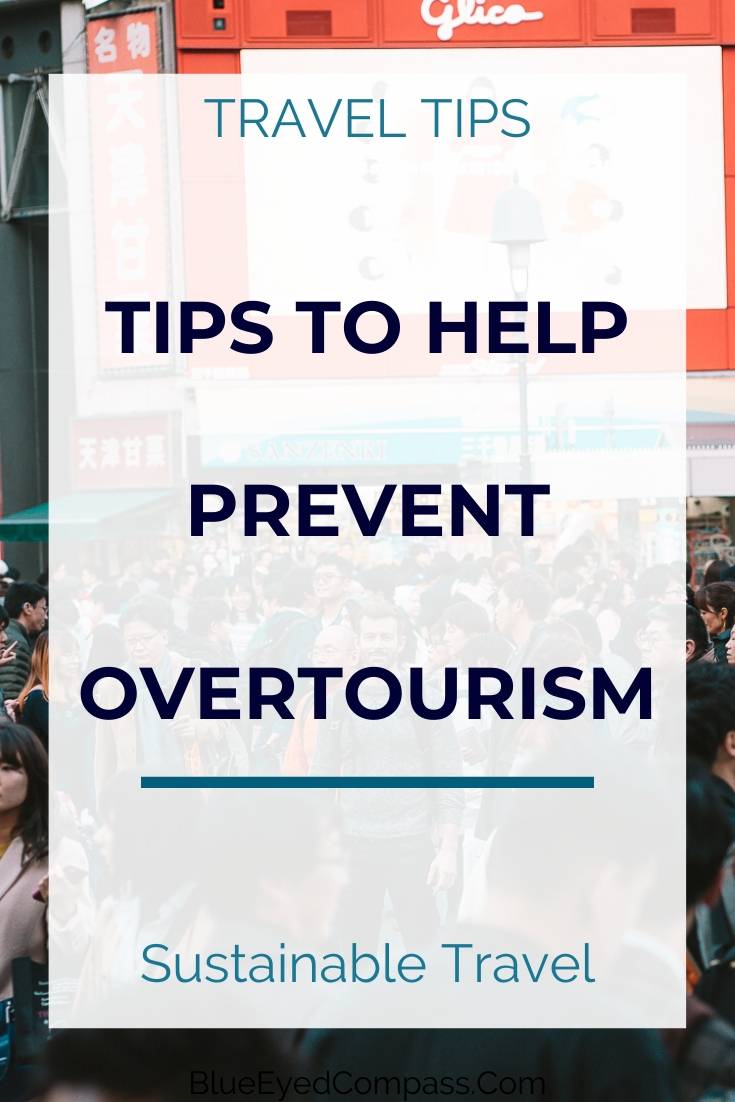

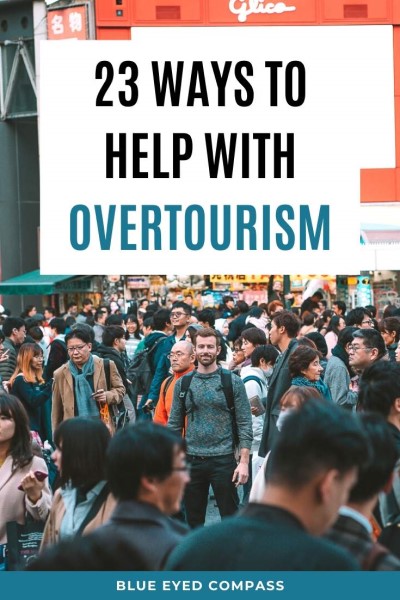

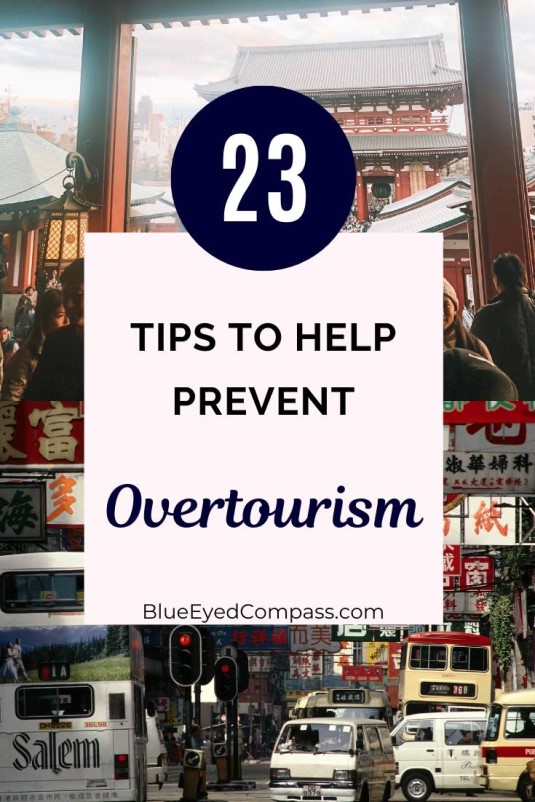

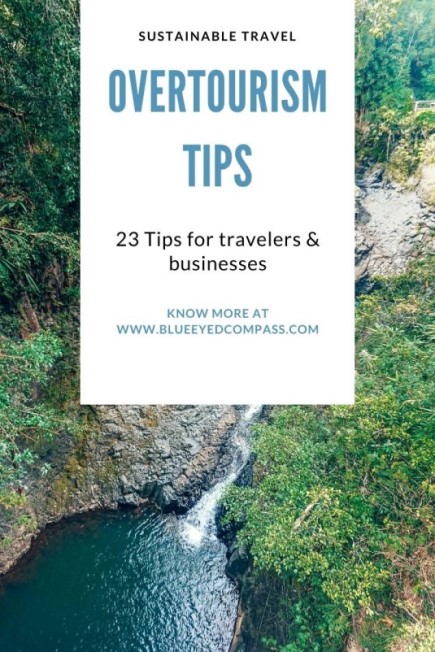

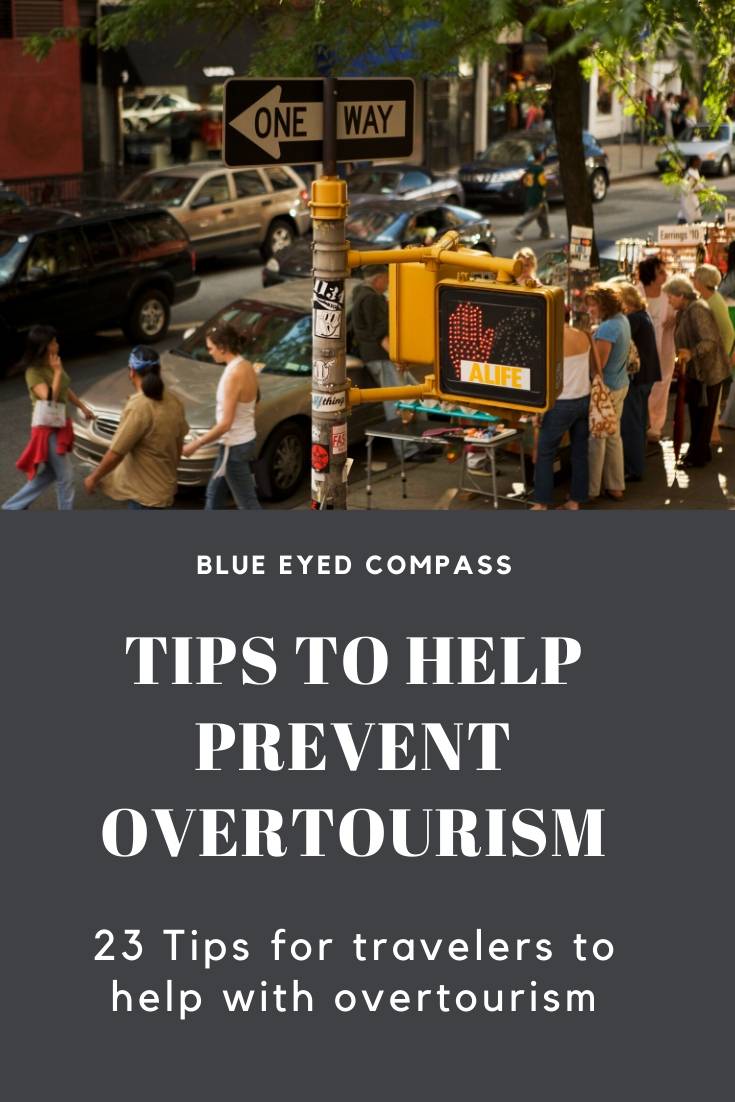

Follow Along




